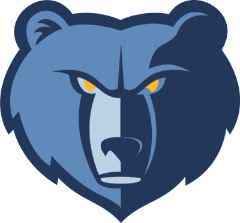For all the laymen and laywomen out there, a salary cap is the maximum amount of money a team can spend on its players in a given season. Salary caps are instituted in order to encourage parity in the league while ensuring that no team can buy a championship(I'm looking at you, AL East). Depending on how much revenue the league generated in the previous season, the salary cap rises or falls accordingly. The NBA cap was instituted in the 1984-85 season. It was 3.6 million dollars. It has risen steadily to get to the $58.68 million figure that we see today.
But apparently that isn't high enough. As of this writing, there is one(ONE!!!) team in all of the NBA that is currently under the salary cap. Congratulations, Memphis Grizzlies! You finally won something!
The NBA has what is called a "soft" cap, as opposed to the "hard" caps that we see in the NFL and NHL. This means that NBA teams can hike payroll well above the salary cap without penalty. And the reason for this is the Hick from French Lick, the legendary Larry Bird. Here, check out this Wiki entry if you want all the details. In a nutshell, the NBA lets teams go over the salary cap in order to re-sign their own players(this rule was first used when the Celtics wanted to keep Bird).
I think I see what the league was trying to do here. Larry Bird belonged in Boston, Michael Jordan belonged in Chicago, so rules were bent to keep them in their home towns. I'd go so far as to say that it was the right decision to institute the Bird rule.
The problem I have with the NBA salary cap is that teams can, in fact, buy championships(2007-2008 Boston Celtics, anyone?). This is exactly what a cap is supposed to prevent! The Celtics' payroll is $80 million this year. The Cleveland LeBrons are spending $90 million! In what universe could this possibly make sense?
For all of you soft cap enthusiasts out there screaming at me to acknowledge the luxury tax, I hear you. Now let me tell you why you're wrong. The luxury tax, for those who don't know, is essentially the actual salary cap figure. Allow me to explain. This season, the luxury tax is set at $71.15 million. If a team exceeds the tax level, they must pay that amount to the NBA, which then distributes that money to the owners whose teams are under the luxury tax figure.
Let's use Cleveland as an example. Because their payroll exceeds the luxury tax level by roughly 19 million dollars, they must give that 19 million to the NBA on top of the 90 million they're already paying the players. Got it?
Of course, if you have a merchandising machine like LeBron James, that $19M becomes chump change pretty quickly. And if you also count the fact that LeBron is decent at playing the game of basketball, you'll realize that a deep playoff run makes the luxury tax even more irrelevant because every single playoff home game nets the owners millions upon millions of dollars.
So what did we learn? Fact 1: The NBA has a salary cap. Fact 2: This cap is about as relevant as 21st century Corey Feldman. The league doesn't have parity; it's all smoke and mirrors. Up yours, NBA.

ARGHH!
ReplyDeleteSorry - just lost my first comments due to blogger crime.
Thanks, Luke - I've got it now.
But, I'd love for you to next tackle MLB's luxury tax, crimes against humanity by NYY, BoSox & others to laugh in the face of MLB's restrictions on payroll. What would baseball look like with even a soft cap?
And, is the NFL the only major sports league with a hard cap? Or, do they not have a hard cap & I misunderstand?
Thanks for clearing all this up.
This is a great explanation of what's wrong with the NBA salary cap.
ReplyDeleteThere has to be a way to shrink this loophole. Then they could apply the lessons to baseball, whether the players and owners like it or not.